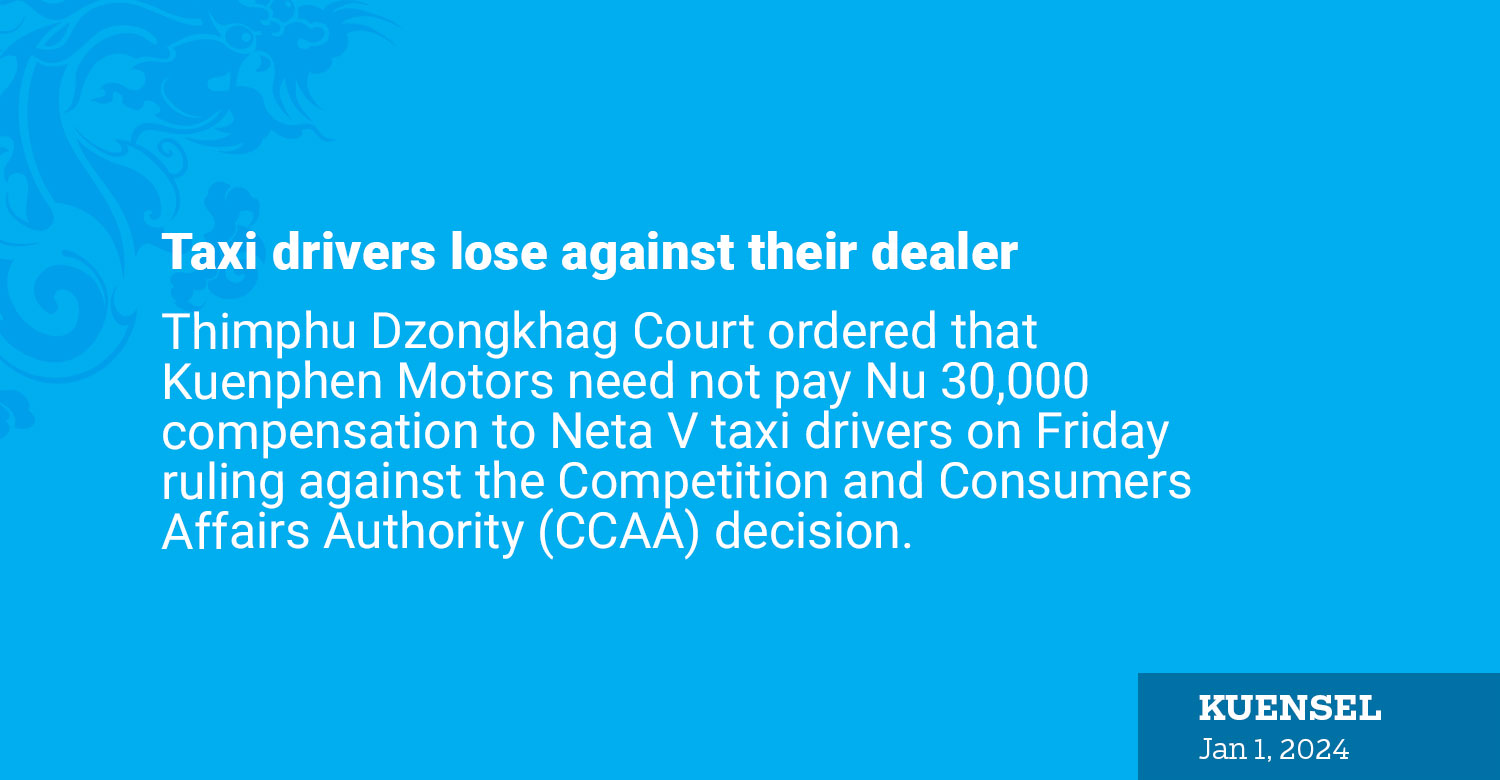Yangyel Lhaden
Thimphu Dzongkhag Court ordered that Kuenphen Motors need not pay Nu 30,000 compensation to Neta V taxi drivers on Friday ruling against the Competition and Consumers Affairs Authority (CCAA) decision.
Earlier this year, 40 Neta V taxi operators registered a case against the dealer for delivering a different variant—384km instead of the advertised 401km—of the Neta V electric vehicle and levying extra charges on delivery from the pre-booking price to the CCAA.
Both parties, dissatisfied with the CCAA’s decision, appealed to the court. Of the 40, 35 drivers filed a case against the distributor to the court.
The court judgment states that both the seller and buyer have not taken equal responsibility, and both are at fault, which is why the court passed an equal judgment.
The taxi drivers submitted to the court, stating that since they were given a vehicle with a 17-kilometer lower mileage, the dealer should pay them 17km difference in daily compensation calculated from the Department of Surface Transport’s intra and inter city taxi rate.
Kuenphen Motors submitted a standard format calculation of the actual vehicle cost calculated by CCAA to the court, which showed that the dealer charged less than the actual landing cost of the vehicle to its customers. The calculation also reveals that Kuenphen owes some of its customers money when he sells vehicles at a flat price.
The judgment states that although the dealer did not provide the promised vehicle to the buyers, the customers also failed to report the complaint on time, and the dealer did not brief the buyers about the vehicle specifications upon the vehicle’s arrival but the customer’s also didnot enquire about it. The court ruled out the pricing issue.
“The first lot of NETA V drivers filed a complaint only after six months but continued driving the vehicle, and furthermore, the second and third lots of NETA V drivers bought NETA V even after the induction course,” the judgment reads. “They have signed an agreement,” the court judgment read.
Kuenphen Motors submitted to the court, stating that awareness programmes were conducted for customers before they booked a vehicle, and induction programs upon arrival were also carried out. This statement was supported by the UNDP and PMO’s electric vehicle project.
The court dismissed the dealer’s appeal, which claimed that some of the 40 complainant taxi drivers were not aware of the issue before appealing to the court, and there are 16 fake thumbprints among those who appealed.
The judgment stated that forgery cases should be routed through police.
The complainant taxi drivers are now planning to appeal to the high court. Both parties have 10 days to appeal to the higher court.


